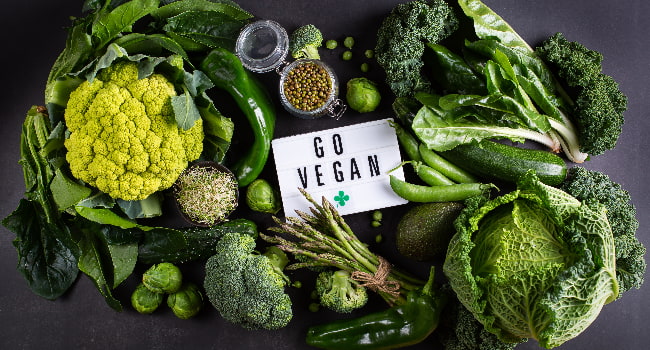Veganism, a lifestyle that excludes all animal products, has gained significant popularity in recent years. But for those new to the vegan world or considering making the switch, questions about specific foods can arise. One common query is, "Can vegans eat eggs?"

This article will provide a clear and comprehensive answer to this question, exploring the principles of veganism, the nutritional aspects of eggs, and the potential for egg intolerance.
Understanding Veganism
Veganism is a way of living that seeks to exclude, as far as is possible and practicable, all forms of exploitation of, and cruelty to, animals for food, clothing, or any other purpose.
This means that vegans do not consume any animal products, including meat, poultry, fish, dairy, eggs, and honey.
Can Vegans Eat Eggs? The Core Principles
No, vegans cannot eat eggs. Eggs are an animal product, and consuming them goes against the fundamental principles of veganism. Veganism aims to minimize harm to animals, and the egg industry involves practices that can be detrimental to animal welfare.
Do Vegans Eat Eggs? Common Misconceptions
There are some misconceptions about veganism and egg consumption. Some people might believe that:

-
Eggs are not meat: While eggs are not technically meat, they are still an animal product and therefore not considered vegan.
-
Free-range or organic eggs are ethical: Even eggs labeled as "free-range" or "organic" can involve practices that compromise animal welfare.
Healthy Vegan Eating: Finding Alternatives to Eggs
Eggs are a good source of protein and other nutrients, but a well-planned vegan diet can provide all the necessary nutrients without relying on animal products.
Here are some healthy vegan alternatives to eggs:
-
Tofu: A versatile soy-based protein that can be used in various dishes.
-
Tempeh: Another soy-based product with a firm texture and nutty flavor.
-
Legumes: Beans, lentils, and chickpeas are excellent sources of plant-based protein and fiber.
-
Nuts and seeds: Provide protein, healthy fats, and other nutrients.
-
Nutritional yeast: A deactivated yeast with a cheesy flavor, often used as a vegan cheese substitute.
Egg Intolerance: When Eggs Cause Digestive Distress
Even if you're not vegan, you might experience digestive issues after consuming eggs. This could be due to:

-
Egg intolerance: Your body might have difficulty digesting certain components of eggs, leading to symptoms like bloating, gas, or diarrhea.
-
Egg allergy: A true egg allergy triggers an immune response, which can cause a range of symptoms, including hives, swelling, and difficulty breathing.
Am I Allergic to Eggs? Recognizing the Signs
If you experience any of the following symptoms after eating eggs, seek medical attention immediately:
-
Hives or skin rash
-
Swelling of the face, lips, or throat
-
Difficulty breathing or wheezing
-
Anaphylaxis (a life-threatening allergic reaction)
Food Intolerance and Digestive Health
If you experience digestive discomfort after consuming eggs or other foods, consider the possibility of food intolerances or sensitivities. These can trigger inflammation and disrupt your gut health.
A food sensitivity test kit can help you identify specific foods that might be causing your symptoms. By eliminating or reducing these trigger foods, you can potentially alleviate your digestive problems and improve your overall gut health.

Key Takeaways:
-
Vegans do not eat eggs, as they are an animal product.
-
A well-planned vegan diet can provide all the necessary nutrients without relying on animal products.
-
Food intolerances, including egg intolerance, can cause digestive distress.
-
If you experience symptoms after eating eggs, consider a food sensitivity test to identify potential triggers.
Remember, this article is intended for informational purposes only and should not be considered a substitute for professional medical advice. If you have any concerns about your health or dietary choices, consult a qualified healthcare professional.
Frequently Asked Questions:
1. Why don't vegans eat eggs if they're not meat?
Vegans avoid all animal products, including eggs, because their production often involves practices that can be harmful to animal welfare, such as intensive confinement and separation of hens from their chicks.
2. What are some common mistakes people make when transitioning to a vegan diet?
Common mistakes include not planning meals in advance, not getting enough protein or other essential nutrients, and relying too heavily on processed vegan foods. It's important to focus on whole, unprocessed plant-based foods and seek guidance from a registered dietitian or nutritionist if needed.
3. I'm experiencing digestive issues after eating eggs. How can I tell if it's an intolerance or an allergy?
An egg allergy typically causes an immediate and potentially severe immune response, such as hives, swelling, or difficulty breathing. An egg intolerance, on the other hand, involves a delayed digestive reaction, like bloating, gas, or diarrhea. If you experience any severe symptoms after eating eggs, seek medical attention immediately.
4. Can a food sensitivity test help me determine if I have an egg intolerance?
Yes, a food sensitivity test can help identify if you have a sensitivity or intolerance to eggs. This can be helpful in making informed dietary choices and avoiding foods that trigger your symptoms.
5. I'm following a vegan diet but still experiencing digestive problems. Could I have other food intolerances?
Absolutely. Even on a vegan diet, you can have intolerances to certain plant-based foods like soy, gluten, or nuts. If you're experiencing digestive discomfort, consider a food sensitivity test to identify potential triggers and optimize your vegan diet for better gut health.


.png?v=1737390083)
.png?v=1737187409)


